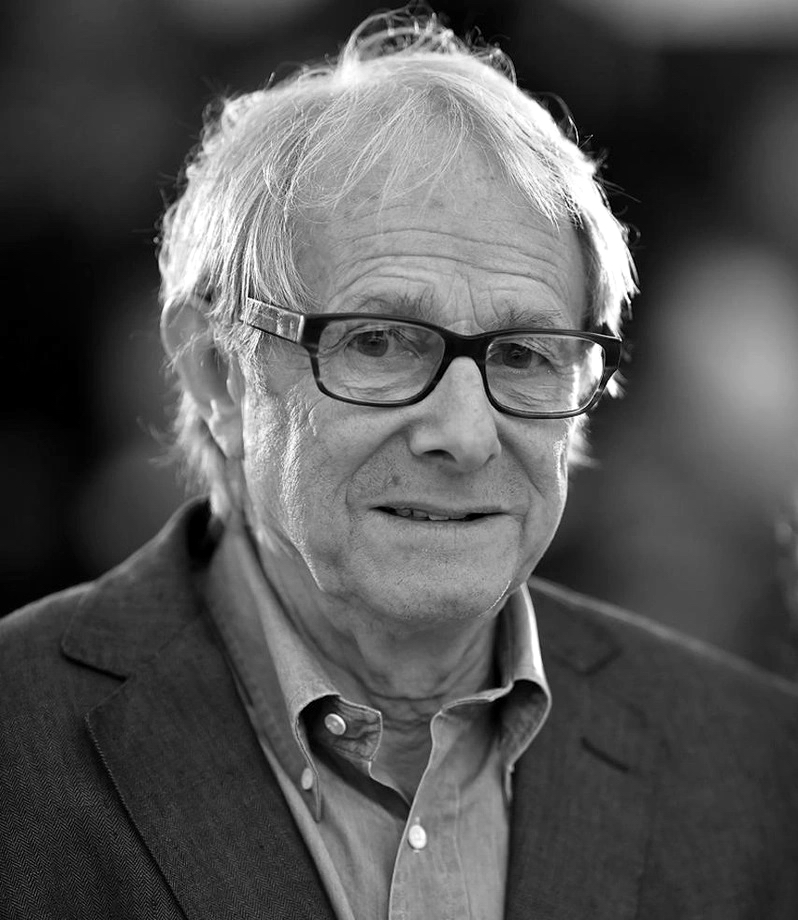| Loach, Ken
 |
Date of birth
17 June 1936, Nuneaton, Warwickshire, England, UK
Mini biography
Ken Loach (June 17, 1936, Nuneaton, Warwickshire, England, UK)
Often labeled a "social realist" but averse to pigeonholing himself as such, Ken Loach is renowned for his reverent depictions of the politics of everyday life.
Studiously avoiding Hollywood's siren call, the British director has etched out a reputation for himself in his native country, as one of the film industry's more respected and idealistic figures.
Born in Nuneaton, Warwickshire, on June 17, 1936, Loach attended Oxford, where he planned on studying law.
Instead, he gravitated toward acting with the university's Experimental Theatre Club and following a stint with the RAF, began his career acting in regional repertory theatre.
“A movie isn't a political movement, a party or even an article. It's just a film. At best it can add its voice to public outrage.”
Loach became a director for the BBC in 1961, where an alliance with producer Tony Garnett led to a series of docudramas.
One of these, the 1965 Cathy Come Home, was a searing exposé of the problem of urban homelessness and the welfare state in Britain. One of the most controversial films ever produced by the BBC, it led directly to changes in the country's homeless laws.
Loach made his feature-length directorial debut in 1968 with Poor Cow. Featuring a very young Terence Stamp as a working-class thief who is thrown in jail, the film blended kitchen-sink realism with New Wave-like stylization, and in focusing on the hardships faced by the wife of the jailed man, provided a glimpse of things to come in the director's future work.
His subsequent effort, Kes (1970), went on to be widely recognized as one of the best films ever to be made in Britain.
The poignant story of a young boy whose alienation at school and troubles with his family are temporarily allayed when he finds and trains a young kestrel, Kes was a captivating, uncomprimising exercise in grim reality.
Unfortunately, following the success of Kes, Loach's career suffered a number of blows, mainly due to poor distribution of his films and the refusal to broadcast some of his TV work, most notoriously his documentaries covering a 1984 miners' strike.
However, the 1990s brought with them a revival of Loach's career and he spent much of the decade turning out one critically acclaimed film after another.
Hidden Agenda (1990), a political thriller set in Northern Ireland, was condemned by conservatives for its strongly leftist stance but won the Jury Prize at Cannes and was unique in being one of the few true examples of anti-Stalinist leftism to reach a mainstream audience.
Riff Raff (1991) and Raining Stones (1993) were more humorous treatments of working-class politics and struggles, and both won a number of honors at Cannes.
Loach's next film, Ladybird Ladybird (1994), was one of his most acclaimed. The harrowing account of a single mother's struggles against the British social service system to get custody of her children, it featured both a brilliant turn by Crissy Rock in the role of the mother and an eloquent, devastating critique of the government's treatment of the poor.
The film won a number of international honors, including top prizes at the Berlin Film Festival.
Land and Freedom (1995) and Carla's Song (1996) were two of Loach's more poorly received films, although both -- the first an account of the Spanish Revolution of the 1930s and the second a love story set against the backdrop of the Nicaraguan Revolution -- offered clear-eyed vibrancy and strong performances from their leads (Ian Hart and Robert Carlyle, respectively).
A similarly strong lead performance was one of the selling points of Loach's next feature, My Name Is Joe (1998).
As the film's title character, an unemployed, recovering alcoholic trying to make a living in one of Glasgow's worst neighborhoods, Peter Mullan won the Cannes Festival's Best Actor award.
A romance between Mullan's Joe and a social worker (Louise Goodall), set against the turmoil of the neighborhood, the film was inspired by the first half of Carla's Song. ~All Movie Guide
Director - Selected filmography
-
The Old Oak (2023)
-
I, Daniel Blake (2016)
-
The Angels' Share (2012)
-
Looking for Eric (2009)
-
The Wind That Shakes the Barley (2006)
-
Tickets (2005)
-
Sweet Sixteen (2002)
-
Land and Freedom (1995)
-
Raining Stones (1993)
-
Hidden Agenda (1990)
-
Kes (1969)
|

